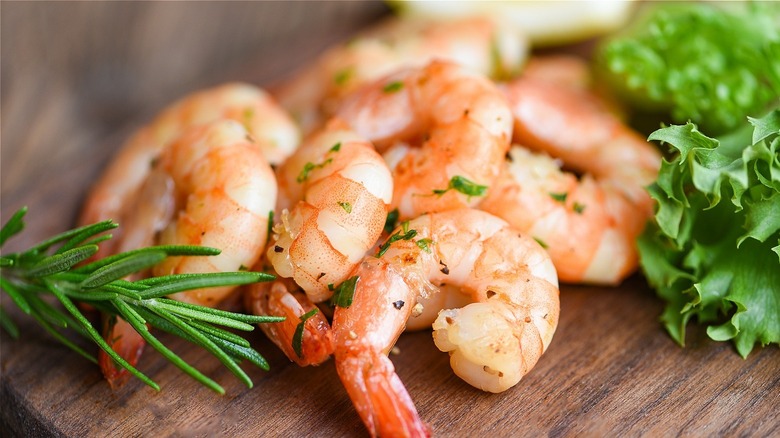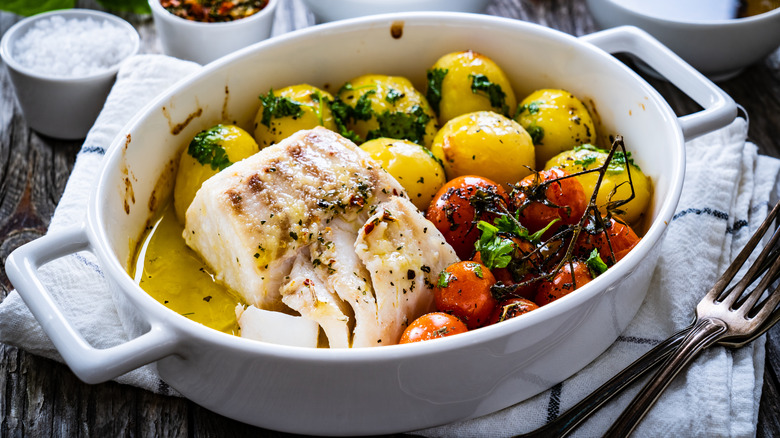Why You Shouldn't Use Your Oven For Pre-Cooked Seafood
Billions of people rely on seafood as a daily protein source, per Sustainable Fisheries, and there are many different ways to cook it. Be that as it may, it is also easy to spoil seafood with incorrect preparation methods. Seafood is often delicate and requires minimal cooking, per The Healthy Fish. One of the most common mistakes people make when cooking fish is overcooking it, rendering it tough and tasteless.
To avoid this, some people may opt for pre-cooked seafood to be reheated at home. To make matters more complicated, though, pre-cooked fish tends to lose its moisture and pleasant texture very quickly when exposed to dry heat (from that of, say, an oven), says Cooking Light. So how best can you enjoy your already prepared shrimp, salmon, or lobster at home? Fresh Fish Daily goes so far as to advise against reheating pre-cooked seafood at all — but don't worry, there are other solutions if you're craving something warm.
How best to prepare pre-cooked seafood
Warming pre-cooked seafood incorrectly is pretty much the same as overcooking it, and it will result in a rubbery texture and loss of flavor. A sure way to accomplish this unfavorable result is by using an oven, a typical example of dry heat, warns Livestrong. Instead, the outlet suggests using a method that includes moisture, or wet heat. If you find yourself with thawed, pre-cooked shrimp, try adding the item to your pasta when it's almost done cooking, steaming it, or quickly sautéing it in an oiled frying pan. If you do need to use your oven, Fresh Fish Daily suggests reheating your pre-cooked fish at a lower temperature, first drizzling it with about a tablespoon of water and wrapping it in foil to seal in the moisture.
Of course, the obvious way to avoid overcooking pre-cooked seafood is to enjoy it cold. Try using your refrigerated shellfish to make a Cajun shrimp salad recipe, for example. The rule of thumb with pre-cooked seafood is to cook it as little as possible, and when adding it as an ingredient to a dish like risotto or sautéed veggies, to do so at the last possible moment.

